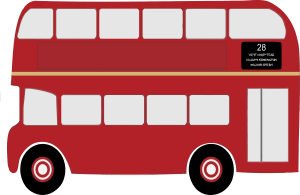… from Exeter and Exmouth to Switzerland
.
There are some good ideas out there about how to tackle transport issues, for example:
.
The man who gave us Boris Bikes – or, rather, ‘Ken’s street cycles’:
Revealed – how the cycling mayor re-wrote history | guardian.com
… also governed the only part of the UK with a fully-integrated public transport policy, including an un-deregulated bus service:
30 years of bus deregulation – it’s time for public ownership! | weownit.org.uk
.
The government has just announced more cash and commitment for bikes and buses:
A better deal for bus users | gov.uk
.
With comment from the Rural Services Network:
RSN RESPONSE – PRIME MINISTER’S PROMISES ON BUS AND CYCLE ROUTES | rsnonline.org.uk
TRANSPORT DESERTS – WHY RECONNECTING RURAL ENGLAND MATTERS | rsnonline.org.uk
.
Exeter is trying to do something about traffic and transport:
– but its powers are limited:
Exeter’s traffic is really bad but something is being done about it | devonlive.com
Whilst Exmouth is very well-served, although other Devon spots are the least well-connected places in England:
The most and least connected places to live in Devon are named in new study | devonlive.com
.
Meanwhile, the Economist points out that bus-use is declining for more reasons than bad service:
.
 The paradox of Britain’s buses
The paradox of Britain’s buses
Everybody wants buses. They just don’t want to use them
Never mind the snazzy, expensive railway line that the government grudgingly approved on February 11th. What really stirs politicians’ hearts is the humble bus. Both the just-sacked chancellor of the exchequer, Sajid Javid, and the mayor of London, Sadiq Khan, are the sons of bus drivers, as they are not shy of saying. Boris Johnson, the prime minister, claims to love buses so much that he models them out of wine crates. This week he promised to throw more money at them.
This will go down well. Buses account for more public-transport trips than trains, tubes and trams put together. People love them, in theory: one poll by Transport Focus, a consumer group, found that 74% of young people think they are a good way of getting around and 85% believe it is important for a place to have a good bus service. There is just one problem. In practice, Britons are taking buses less and less (see chart). Powerful forces are driving this trend—probably too powerful to be counteracted with a dollop of public money…
The paradox of Britain’s buses | economist.com
.
And as a paper from the TUC last summer notes, it is indeed going to need more than just throwing money around which will produce a modern public transport system:
To bring back bus travel, we should learn from the Swiss
So how can we do this?
Well, we can look at what has worked in the past.
Buses in London were never deregulated when services were privatised across the country. So TfL is able to direct provision to make sure it meets the needs of the whole community, so private operators can’t just cherry pick the most profitable routes. It means they could insist on a single ticket system for all buses and implement a smart-ticketing system to speed the process of paying for your journey.
Re-regulating bus services would be a good start, and it has already started. Andy Burnham, the metro mayor for Greater Manchester has announced that he will do it, using powers granted in the 2017 Bus Services Act.
Municipalising bus services would be even better. That would mean local authorities would have the powers to run, not just regulate bus services. This is still illegal after privatisation, despite efforts to change that as the Bus Services Act went through parliament.
But we need more than this
We need to rethink our whole attitude to public transport.
In Zurich city region the local authority closely defines three levels of bus service. A village of 300 people or more receives a level one service, a bus every hour. Level two is every half-hour, and is guaranteed to routes where the flow of passengers from multiple settlements combine to boost demand. Level three provides one or more buses every 15 minutes and is for large, densely populated areas.
Bus timetables are linked up to train timetables, so buses are scheduled to arrive at major stations a few minutes before specific trains depart, and leave a few minutes after. This coordinated timetable is the Taktfahrplan (literally the clock timetable). Coordinating timetables nationwide is considered such an important priority that the final taktfahrplan is signed off by the cabinet.
So why can’t we have a taktfahrplan?
Well we can’t have one now because it requires coordination at local and national level and our privatised, fragmented system is just not congenial…
To bring back bus travel, we should learn from the Swiss | tuc.org.uk